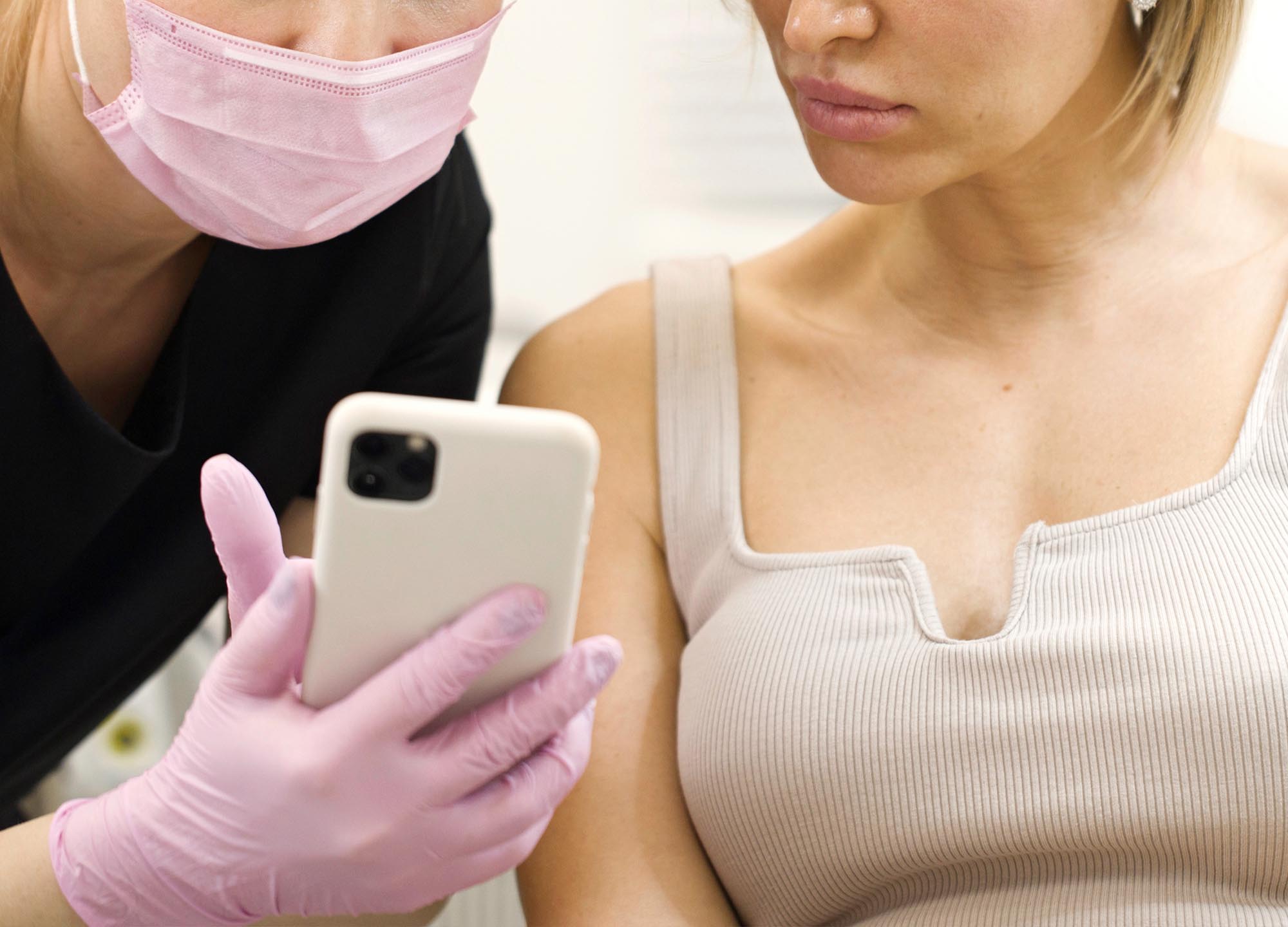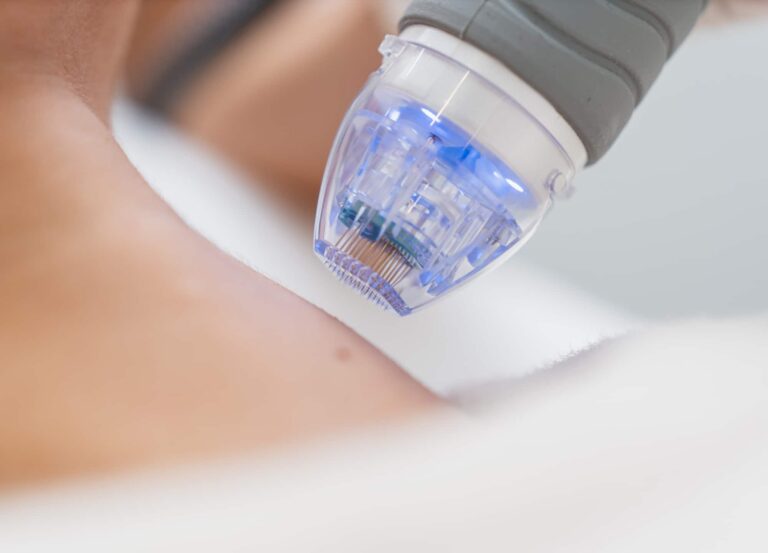For most of us, social media is a normal part of our day-to-day lives, whether we’re actively posting, passively scrolling, or doing a little bit of both. And in the medical aesthetics world, social media has added a new layer to the experience, both for doctors and patients. “These days, most practices, particularly cosmetic practices, are on social media. It’s a great way to be able to interact with patients and highlight what we’re doing in the office,” says New York City board-certified dermatologist Dr. Bruce Katz.
Dr. Amelia Hausauer, a board-certified dermatologist in Campbell, California, agrees, noting that more and more patients are using social media as a tool to help find the best doctor for them. However, this added dimension comes with its own set of nuances, particularly as it pertains to patients’ rights when their faces and/or bodies are being shared on Instagram, Facebook, and more. Ahead, what you need to know before you sign a consent form and what to do if you find yourself in a situation where your doctor is pressuring you to be on their social media account.
Patients have explicit rights to privacy
“The law is pretty clear. A doctor can’t share photos or videos of a patient, unless that patient has specifically agreed to it,” says Michael Byrd, a Dallas-based attorney specializing in medical aesthetics. Whereas standard HIPAA laws safeguard privacy as it pertains to personal health information, these don’t account for using your likeness, be that on social media, on the TV in the office waiting room, or even in educational materials, he says. For this, there has to be specific authorization given, typically via an additional written consent form.
The consent you give should be specific
While the consent form will differ from practice to practice, there are some key things that should always be included. Typically, you’re giving written consent for photos, videos, and/or your quotes to be used, says Dr. Katz. You should be able to choose which of these—if any—you’re comfortable with. But how these likenesses are going to be used also needs to be specified. Dr. Hausauer says that the consent form in her practice allows patients to check off various uses, including educational presentation, textbooks, the practice’s website, social media, and more. And she suggests that patients get even more specific before signing off on anything. “Do you want your eyes blocked out in social media posts? Are you okay with filler injections being filmed anywhere on your face or just on your lips? Be specific about all that, both via writing and in discussion with your physician,” she says.
To that point, both she and Dr. Katz underscore the importance of also discussing and reviewing these specifics with your doctor—especially if you have questions or concerns. Byrd agrees: “It shouldn’t be just a form that you sign off on and then never talk about. You want to make sure you have a good understanding of exactly how your images or videos are going to be used so that everyone is on the same page. Consent and good communication are key,” Byrd says.
Related: Plastic Surgery Patients Are More Difficult Than Ever. Doctors Blame Social Media.
What should you do if you’re feeling pressured by your doctor?
It’s simple: “Just say no,” says Dr. Katz. “Any respectable doctor won’t take it personally, nor should this affect your relationship with them. And if it does, consider that a serious issue and warning sign.” Dr. Hausauer firmly agrees, adding that you don’t have to worry about providing an explanation or reason for not wanting to be on social media. She also points out that it’s important to not lose sight of the fact that these are medical procedures. “Yes, when it comes to aesthetics, photos and video are an important piece of the puzzle. But these are medical procedures, being performed in a clinical setting, and that affords patients a very specific type of privacy. A doctor wouldn’t share your information if you were undergoing cancer treatment. So if you don’t feel comfortable with something, be firm about your limits,” she says. At the end of the day, if your physician doesn’t respect that, it’s time to find another.
It’s also worth mentioning that the patient has final veto power over anything that is shared. “If you don’t like how the photos or videos came out or ultimately decide you’re not comfortable with the situation, you can revoke your consent,” says Dr. Katz. Byrd confirms that from the legal perspective, yes, a patient can change theirr mind. The caveat? Not everything that’s shared can be removed. Some social media posts can be taken down, but there are some that get picked up and will remain out there on the internet, he says.
Other red flags to look out for
Even if you’re okay with publicly posted photos or videos, be wary if your physician wants to share any other kind of identifying information, including your name or age (unless you’ve explicitly agreed to this), says Dr. Hausauer. Similarly, she says that tagging patients’ social handles is a no, unless the patient specifically wants the doctor to do so. Sharing any other type of private information, such as anything related to financials, work, or friends and family members, is also a red flag, cautions Dr. Katz.
What about social media posts in exchange for discounted services?
Dr. Hausauer says that she has heard of physicians offering patients free or discounted services in exchange for agreeing to be on social media, but she says it’s not a good look. “It’s just another way of the doctor adding pressure, exerting authority in a way that’s above and beyond the norm,” she explains. Byrd says the legality of such situations is questionable and veers into dicey territory. “I can’t think of an example of a governing body going after a practice for doing this, but it is risky for physicians,” he says, adding that there may also be some legal responsibility on the patient’s side. He cites certain FTC rules that require influencers—often the ones who are getting these freebies—to disclose any free treatments they’re sharing on social media.











